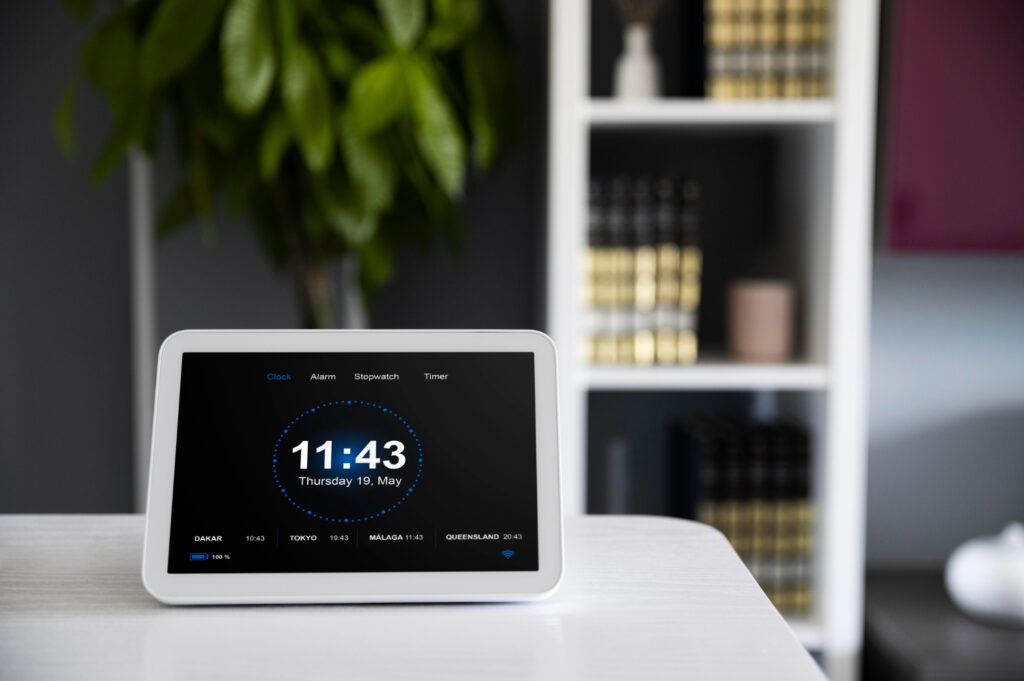Smart Locks vs. Biometric Door Locks: Which Is Best?
When it comes to modern home security, smart locks and biometric door locks are two of the most popular choices. Both offer convenience, advanced features, and stronger protection than traditional locks, but they also come with key differences that can influence your decision. In this guide, we’ll compare smart locks and biometric locks side by side, highlighting their pros, cons, and the best use cases for each.
Table of Contents
What Are Smart Locks?
Smart locks are electronic locks that connect to your smartphone, Wi-Fi, or Bluetooth. Instead of relying on a physical key, they allow you to unlock your door using an app, PIN code, or digital key.
Key Features of Smart Locks
- Remote access through mobile apps
- Integration with smart home systems (Alexa, Google Home)
- Guest access with digital codes
- Activity logs to track entries
- Traditional key backup in most models
Smart locks are especially appealing for homeowners who want convenience and control over who can access their property.
What Are Biometric Door Locks?
Biometric door locks use unique biological data, such as fingerprints, facial recognition, or even iris scans, to grant access. They provide a high level of security because biometric data is nearly impossible to replicate.
Key Features of Biometric Door Locks
- Fingerprint or face recognition entry
- Fast and contactless access
- High accuracy and unique identification
- Some models include multi-factor authentication
- Limited reliance on external devices
Biometric locks are ideal for businesses or high-security homes that require personalized authentication and minimal risk of unauthorized access.
Smart Locks vs. Biometric Locks: Key Differences
To make the right choice, let’s compare these two lock types across the most important factors.
1. Security
- Smart Locks: Provide digital codes, app control, and integration with home security systems. However, they may be vulnerable to hacking if not properly secured.
- Biometric Locks: Offer superior authentication since fingerprints and facial data are unique. However, poor-quality scanners may sometimes fail to read prints accurately.
2. Convenience
- Smart Locks: You can grant remote access, create temporary codes, and even lock/unlock doors while away.
- Biometric Locks: Extremely fast entry with just a fingerprint or face scan, but harder to share access with guests unless supported by a PIN backup.
3. Power Source
- Both rely on batteries, but smart locks often drain faster due to wireless connectivity. Biometric locks are more power-efficient.
4. Cost
- Smart Locks: Wide price range, usually between $100–$300.
- Biometric Locks: Generally more expensive, often $200–$500 or more.
5. Integration
- Smart Locks: Work seamlessly with smart home ecosystems.
- Biometric Locks: Usually standalone devices, though some premium models now integrate with smart systems.
Advantages of Smart Locks
- Easy integration with existing smart home setups
- Remote management of doors
- Flexibility in granting and revoking access
- Often more affordable than biometric locks
If you travel often or manage rental properties (like Airbnb), smart locks are a practical solution.
Advantages of Biometric Locks
- Stronger, personalized security
- No need to remember codes or carry keys
- Faster entry compared to traditional locks
- Difficult to duplicate or hack
If you prioritize security above convenience, biometric locks are an excellent choice.
When to Choose Smart Locks
Smart locks are best suited for:
- Homeowners who want remote access control
- Smart home enthusiasts looking for device integration
- Landlords or Airbnb hosts managing multiple guests
- Families needing flexible access codes for children, babysitters, or visitors
When to Choose Biometric Locks
Biometric locks are best suited for:
- Businesses requiring strict access control
- High-security properties where personalized access is essential
- Tech-savvy users who value cutting-edge authentication
- Homeowners who want stronger protection without relying on smartphones or codes
Which Lock Is Right for You?
The choice between smart locks vs. biometric door locks depends on your needs:
- Choose a smart lock if you want flexibility, remote access, and smart home integration.
- Choose a biometric lock if your priority is maximum security and you prefer personal authentication methods.
For many households, combining both technologies (a smart lock with biometric options) offers the best of both worlds.
Final Thoughts
Both smart locks and biometric locks represent the future of home security. While smart locks focus on convenience and connectivity, biometric locks focus on personal identification and enhanced safety. Your decision should align with your lifestyle, budget, and security priorities.
For more information on advanced security technologies, you can check resources like CNET’s smart home guide for expert comparisons.
If you’re ready to upgrade your home security, explore our latest smart lock product at the best price and enjoy both convenience and protection for your home.


